please identify cucumber problem
Hello, I am having a problem on some of the leaves of my cucumber. Please see pic. This started near the ground and is moving up. It seems to be limited to the longest vine (or whatever it's called, I don't mean one plant). I see some black beetles about 1/4" long here and there but they are not concentrated on the affected leaves.
What is this and what can I do about it?
Thanks
Ron
Comments (23)
Macmex
9 years agolast modified: 9 years agocochiseinokc
9 years agolast modified: 9 years agoDon't know, but since cucumbers are already turning bitter, I wouldn't spend a lot of time trying to fix it.
Related Professionals
Citrus Heights Landscape Architects & Landscape Designers · Saint Louis Park Landscape Architects & Landscape Designers · Salisbury Landscape Architects & Landscape Designers · Alexandria Landscape Contractors · East Patchogue Landscape Contractors · Fridley Landscape Contractors · Louisville Landscape Contractors · North Haven Landscape Contractors · West Covina Landscape Contractors · Ashland Decks, Patios & Outdoor Enclosures · Crystal Lake Decks, Patios & Outdoor Enclosures · Fort Lee Decks, Patios & Outdoor Enclosures · Freehold Decks, Patios & Outdoor Enclosures · Livingston Decks, Patios & Outdoor Enclosures · Glendale Decks, Patios & Outdoor EnclosuresAmyinOwasso/zone 6b
9 years agolast modified: 9 years agoI had to google cucumbers turning bitter. This is the first year in a very long time that I have grown cukes. I have some leaves that look like this. I hope it is not a disease. I bought plants. I am about to swear off buying plants, because they have had so many more problems than things grown from seeds. Are there any recommended cukes for growing in heat? Do I have to start new plants to do pickles? Why didn't I know this?
BasicPoke
Original Author9 years agolast modified: 9 years agoMy cucumbers are not turning bitter, they're just getting started with production. I don't remember anything bitter last year either. My co-worker's aren't bitter either. They are a different variety than mine. We are in Verdigris.
AmyinOwasso/zone 6b
9 years agolast modified: 9 years agoI am in Owasso, we're neighbors! Tasted one I picked today, it was not bitter. From my research, heat and uneven watering can cause bitterness. Also, occasionally a plant has a recessive gene and will be bitter. I had no idea until I joined this forum how many things were effected by heat. I knew tomatoes wouldn't set fruit when it got hot, but didn't know beans wouldn't either.
Okiedawn OK Zone 7
9 years agolast modified: 9 years agoBasicPoke, Diagnosis by photo can be very difficult, so instead of guessing what it might be, I'm going to link the TAMU Cucurbit Problem Solver. Maybe if you look at the photos of cucurbit diseases on that linked document, you'll see one that looks exactly like what you're seeing on your plant. One reason that diagnosis by photo is so difficult is that often you will have more than one problem occurring at the same time, and that makes diagnosis tricky. Another reason is that it is easiest to diagnosis a disease when you have seen how/when it appeared, how it progressed, and know exactly what the environmental conditions have been all along as the plant as grown. Since a snapshot catches one moment in time, we don't have the context of knowing anything other than how the plant looked at the specific time you took the photo. I'm not saying your plant's issue isn't anthracnose either....just saying that I'd only be guessing because whatever you have your on plants is not something I've ever seen on my plants.
Some cucumber varieties are naturally more bitter than others, but any sort of stress can/will make cucumbers taste bitter. Almost all cucumbers likely have the potential to turn bitter, but that can be avoided if you minimize stress. Most of the time, the sort of stress that causes cucumbers grown in our climate to taste bitter are heat stress or drought stress or both. While you cannot control the heat, you can reduce drought stress by keeping the soil they're growing in evenly moist by watering regularly when rain is not falling. Applying a layer of at least 4" of mulch also helps prevent bitter cucumbers by keeping the soil in which they are growing more cool and more moist. At the end of the growing season, in late fall, cool temperatures are a different kind of stress that can cause bitterness. Finally, poor nutrient availability can cause bitterness. Amending soil regularly and feeding the plants as needed can eliminate poor nutrition as a cause of cucumber bitterness.
I grow tons and tons of cucumbers all summer long most years and have no issues with bitterness whatsoever even though we have a rather obvious issue with high temperatures/low rainfall most summers. Most years I harvest enough cukes in July and August to can 100 or more jars of pickles. Even when eaten fresh, though, I've never noticed bitterness. I deliberately plant my cucumber seeds late so that I can get all the tomatoes canned in June and early July before I move on to canning pickles. Planting them late means I do have to pay extra attention to irrigation so that they will not develop a bitter flavor. I also am really careful about harvesting the cukes while they are a little on the small size. The longer you leave them on the plant, the greater the chance that they'll become bitter. People I know who always leave them on the plant way too long tend to have a lot of trouble with bitterness.
Hope this helps,
Dawn
Here is a link that might be useful: Cucurbit Problem Solver from TAMU
Macmex
9 years agolast modified: 9 years agoAbout transplants, I really don't like how so many are beginning to think that they have to buy transplants for everything. I can see doing it with tomatoes, peppers, and eggplant. But squash, cucumbers, beans and corn will probably do better, planted by seed, in almost every case.
Some people new to gardening are intimidated by starting from seed, But I'd recommend that they at least try it. The main thing is to plant according to the recommended depth. For most of these larger seeds (I'm including cukes) I plant between 1/2 - 1" depending on whether the soil is light or heavy. The other thing is to keep the soil from drying out until all the seeds are up . So, for cukes and squash, especially, I like to plant in a slightly indented row or shallow depression. It makes it easy for watering.
A sprinkler is fine for watering newly planted seeds. Just be sure that you water long enough to soak the soil, and, don't water during the heat of the day.
If the seeds are in loose enough soil, that pouring water on them might unearth them, then lay a piece of cardboard or paper over the depression and water on top of that. The water will be deflected enough to avoid that kind of damage. But you must be vigilant to remove the paper or cardboard once the plants start to emerge.
George
AmyinOwasso/zone 6b
9 years agolast modified: 9 years agoI started a lot from seed, but somehow I forgot to buy cucumber seed. However, the melons, direct seeded, are tiny. Maybe they are waiting for some heat. We got our Cucumber transplants at the farmers market. I think they have produced enough to say they have paid for themselves, but I want a lemon cuke...possibly for the fall, certainly for next year. It is one thing my husband has requested.
Okiedawn OK Zone 7
9 years agolast modified: 9 years agoI agree with George about growing from seed. Sometimes I feel like growing from seed sown directly in the ground is becoming a lost art. I do understand that sometimes new gardeners are worried their seeds won't sprout so they prefer to start with plants. Nowadays, too, a lot of people want to have an instant garden---you know, rototill the ground today, add some amendments and work them into the soil, run to the store and buy plants, come home, put them in the ground, water them in and declare that your garden is planted. There's nothing wrong with that, but it gets expensive in the long run, and it isn't necessary either. Seeds can be sown just as easily (or more easily) than plants can be transplanted into the ground.
I see transplants for sale in the stores that I'd never buy for any reason whatsoever---green beans, sugar snap peas, corn, etc. Or, I'll see a 4" pot with 15 cucumber plants in it. Sure, you can buy it, take it home, separate the 15 plants out carefully and plant them, but they aren't going to like being handled that much and will be slow to adjust and start growing. It is so much easier to sow seed directly in the ground yourself.
If somebody wants one single herb plant, maybe I see the logic in buying a transplant. But, for the price of the transplant you can grow hundreds of herb plants from seed. I plant oodles and oodles of parsley, dill, fennel and florence fennel plants for the swallowtail caterpillars and the reason I can plant oodles is because I raise them all from seed. I'd never go to the store and buy dozens of herb plants for the butterflies, but it is easy to buy 3 or 4 packs of seed and sow those seeds for the butterflies.
Amy, It isn't too late to sow lemon cucumber seeds now and get a crop for late summer and fall. All cucumbers seem to tolerate heat about the same. The difference I see in how different varieties perform is in the area of disease tolerance. Some varieties are real disease and pest magnets, while others are not. Armenian cucumbers are more heat tolerant and drought tolerant than standard cucumbers, but Armenian cucumbers aren't really cucumbers---they are in the melon family, even though they can be harvested small and used as cucumbers.
Do you know what kind of cucumbers you're growing? Are they slicing type cukes for fresh eating or are they pickling cukes? Whether you need to sow seeds now to get new plants for pickles depends on whether the ones you're already growing are pickling types. If you remember the name of the ones you bought, tell us and we can tell you if it is a pickler or a slicer.
I normally grow County Fair, H-19 Littleleaf, Eureka and Sumter for pickling. I grow the light green Armenian cukes and the striped Armenian cukes for fresh eating, and sometimes I get so many of them that I feed them to the chickens or to the deer. These are the varieties (not including the Armenian types) that have shown the best disease tolerance and pest tolerance in my garden. There's tons of pickling types available and I used to grow National Pickling Cuke or Boston Pickling Cuke, but they were more prone to diseases than the ones I grow now. Armenian cucumbers are more disease-prone, but they grow at a very fast rate so often can outgrow disease and continue producing for a long time even if their leaves look crappy.
I've never felt like cucumbers or melons transplanted into the garden seem to grow as quickly as those that are direct seeded. The transplants seem to sit there in transplant shock for a week or two before they start growing, and often they grow slowly for a couple more weeks before they begin to take off and grow at a normal rate.
Sometimes I grow my own cucumber transplants to set out in the garden, but I don't buy transplants. There is a valid reason to raise your cucumber transplants at home and then put them in the ground. That reason is cucumber beetles. If you have a heavy population of cucumber beetles, they can feed on tiny seedlings and either kill them or infect them with disease as soon as the seedlings sprout. So, if you start the transplants inside and don't transplant them out until they have a couple of true leaves, they generally can tolerate cucumber beetle damage better than tiny seedlings from seeds sown directly in the soil.
When I direct-sow cucumber seeds in the soil in late May through late June (I try to plant my cucumbers late on purpose so I can finish canning tomatoes before I start canning pickles), they usually sprout in less than a week and then they grow really quickly. Why buy transplants? Often they have been in their pots too long and that causes them to sit and sulk for quite a while before they take off and grow.
As for why your melons are so slow to grow, Amy....I don't know the answer but might have a couple of ideas. If you planted them while the soil temps or air temps were lower than what they like, they often will stall and not grow for a long time. It is as if they are mad about being cold and are pouting. Do you remember how long ago you sowed the seed and approximately when it sprouted? I planted melons in late May to grow up the trellis where the sugar snap peas had been growing. Those melons (both muskmelons, which are commonly called cantaloupes here in the USA even though they are not true cantaloupes, and refrigerator melons) now have climbed to the top of the 5' trellis and are cascading back down and are in full flower and are setting fruit. That is the typical behavior of melons planted once the soil temps and air temps are warm enough for them. If your melon plants have been in the ground a long time and are not enlarging, spreading and growing, something is wrong and it makes me think either the soil is too wet (which you cannot do much about if you've been in an area that's been getting a lot of rain) or something underground is feeding on the roots. With melons, I always get better plants and better production if I plant them slightly late. I think OSU recommends May 1-20 as the planting dates for melons, but I tend to plant them closer to the end of May through the end of June, because in recent years the cold nights have held on more deeply into May and melons don't like those occasional cold nights.
In a different area, volunteer watermelon sprouts came up on their own in May and I transplanted them out of the tomato bed where they sprouted and moved them to a couple of empty spots in the onion bed. They got off to an earlier start than the ones I planted to grow on the trellis and already have produced two ripe watermelons. We were hot and dry in May and in most of June, so they had the kind of weather they love and grew accordingly.
It isn't too late to sow melon seeds if you have them. You might be able to sow new seeds and get quick sprouting and fast-growing plants that would outgrow the melon plants you have whose growth seems to be stalled.
Dawn
chickencoupe
9 years agolast modified: 9 years agoAll my cukes are diseased as well as my muskmelon. Sad. Some of my beans, too, but they're outgrowing it.
AmyinOwasso/zone 6b
9 years agolast modified: 9 years agoI planted melons and squash some time in Mid to late May. I know I should have kept track. the squash are big, I am seeing fruit starts on the trombocino. The Seminole pumpkin is huge and I think it was planted later. The cukes I bought were Diva and one that just said Burpless something. The burpless is at the top of a trellis, maybe 6'. The Ananais melon is about a foot tall. The other melon,which wasn't very big accidentally got pulled with weeds. I planted another in a pot, and it is still awfully small. The only thing I can figure is the other plants in the bed are shading the melons the Ananais is in the southeasr corner of the bed. The cukes are on the west side and growing up a trellis on the north side. In the center is a jungle of radishes going to seed and buckwheat. The radishes are really tall. I think the cukes are fresh slicer types. They never seem to be gerkin sized, going from tiny to too big.
Okiedawn OK Zone 7
9 years agolast modified: 9 years agoBon, Have you tried to diagnose the plant disease and treat the plants? Cukes are prone to lots of foliar issues, and if you treat in time you can save them from some of those diseases.
Cucumbers used to drive me up the wall with their finicky ways---perfect plants one year and this horrific whiny sickly-looking things the next year. I started selecting varieties based strictly on disease-tolerance and that has made all the difference. County Fair is the variety that never fails because it has a lot of disease tolerance. As far as I know, it is the only cucumber variety that is tolerant of or resistant to bacterial wilt, which is spread by cucumber beetles.
Lemon cucumber, an heirloom variety that's older than the hills, is surprisingly disease-tolerant----and without the benefit of modern breeding.
The biggest thing is to control cucumber beetles because they spread diseases like mad, particularly bacterial wilt. Also, rotate cukes on a 3-year rotation because so many of their diseases can persist in soil. Clean up plant debris because disease persists in the debris. Don't grow your cukes anywhere close to your corn in the current year or to where you grew corn the previous year. Oh, and keep water off the foliage to help prevent many of the foliar diseases. That's easy to do, right? I think it is so much harder to have healthier cucumber plants in a wet year than in a dry year.
Amy, Diva is a pretty good variety. It was an AAS winner in 2002 and it has a lot of disease tolerance. Often, it is difficult for cucumbers to make it through our whole long summer here. We just have too many kinds of pests and diseases in addition to the endless summer heat. I often succession sow more cukes once a month or so. If I get too many cukes, I either can them as pickles or relish, or I just slice them up and toss them out by the compost pile and the deer have a big feast.
I think one reason everyone is seeing so much disease is because y'all have had a lot of rain. Moisture on the leaves is never good---it can encourage all sorts of disease issues.
Dawn
chickencoupe
9 years agolast modified: 9 years agoWe have had a lot of rain! Until just now where it is automatically on extreme drought we were wet wet and nasty wet. And the garden, right now, is more like wildcrafting than anything "clean" with that sea of buckwheat. So, I put it in my mind to grow grow grow and be happy even if it dies. At least I get to see what it looks like and deal with it properly. I have much space to grow in, too. I just haven't had time to worry about disease except to know that's what it is and dispose of it properly. I yanked the Luffah's out yesterday. Honestly, I think the Luffahs were just heat stressed, not diseased. lol
I've seen the yellow spotted and striped beetles and there are a few red spotted ones on my corn. I really expected this. Only, I really expected so much more damage, but the beneficials have shown up in massive numbers to my surprise.
So, now, my goal is to shape up the garden in a fashion I can manage best by keeping the areas clean and controlling weed growth (yeah, right?!).
The tomato plants have let me know, "It's rough, but it'll do." They're starting to show signs of blossom end rot on a few telling me all about the soil.
All but the corn is growing in unamended soil. They didn't stand much of a chance to begin with. Even the Okra is grunting to grow.
But it's a start!!
AmyinOwasso/zone 6b
9 years agolast modified: 9 years agoGrunting to grow, LOL! My okra is kind of slow, too. I am thinking a little fish emulsion. It is just that the dogs want to dig up stuff treated with that. You have mentioned the buckwheat before. I threw a few seeds in my beds to attract beneficials, have I missed a thread where you explained this?
chickencoupe
9 years agolast modified: 9 years agoBuckwheat is a cool season crop. I got lucky. We've had so much cool weather, cloudy days and just enough rain fall it all came up. Individual plants are at 5'-5" tall.
If you plant now you'll probably get spotty germination (in the mornings when it's cool) and they'll struggle to survive the heat. The rest will come up in fall when the temperatures cool down. It pulls up and kills easily so there's no worry about it being invasive (unless you seed 30# like I did and let that 30# go to seed.)
It pulled in massive amounts of bugs between the flowers and providing ground cover. Of course, I'm talking about 5,000 sq ft, here. It did exactly what I hoped. My weeds are minimal. The bugs that favor the flowers the most are wasps. And most of them are voracious bug killers. They don't bother me, but that part might bother others.
Lately, the bees have been showing up in massive droves swarming the flowers in the morning. Bill came in the other morning cussing about it. I smirked and smiled selfishly. I'm guessing other flowers are dying right about now? So they're coming over here. It's GREAT!
Okiedawn OK Zone 7
9 years agolast modified: 9 years agoWe have bees year-round so I imagine you will too. They really are starved for something to eat in the winter and spend the whole day foraging. I try to keep some sort of cool-season flower, cover crop or weed blooming for them. Sometimes I use hummingbird feeders without bee guards as bee feeders in winter. I've noticed for well over a decade now that when I put out cracked corn for the mourning doves, the bees feed on it, though I am not sure how they do it. That's especially true in the dead of winter, but also in every other part of the year as well.
Buckwheat is wonderful and clover attracts many bees and other pollinators as well. Clover also is a cool-season crop, but I have little bits of clover here and there in shady areas that survives almost year round. Sometimes it dies back in mid-summer. Some of it was blooming last week behind the barn but I haven't looked at it lately because all I've done for far too long is harvest, can, harvest, can, harvest and can. It is amazing how much changes in the garden if you are only stepping foot in it a couple of times a week to harvest.
I had a volunteer plant pop up in the back garden about a month ago. It is an Armenian cucumber. The cool thing is that it popped up in the middle of a hill of summer squash plants and it is growing over them, through them and around them. Their foliage is mixed it with the cuke foliage, and these plants are producing a nice harvest. I also haven't seen a squash bug or SVB near them. (Now that I said that, I'll go out tomorrow and discover SVBs have killed them all because that is how gardening works.) Say "I haven't seen a cucumber beetle all year...." and a million show up the next day.
It will be interesting to see if the squash pests avoid the squash plants growing with the Armenian cuke (which, you may remember, is a melon and not a cucumber). I've often wondered if I could hide other summer squash and winter squash plants by planting them in the middle of Seminole plants. I haven't really tried it because the Seminole is such a rampant grower that I think it likely would smother any other nearby plants.
Bon, Fred often complains to me that he doesn't have bees and I just don't get it because he is less than a mile from us. I know he does have them when the fruit trees are blooming. My garden is so filled with bees and wasps that some of my friends don't want to step foot it in. I work out there in it all the time and haven't been stung by a bee or wasp in the garden in years. Of course, if I was allergic to them, their presence would be a problem. And, of course, often people who don't have plentiful bees and pollinators have brought it on themselves by spraying broad-spectrum insecticides, which is something I avoid doing specifically for the sake of the bees and other beneficials.
I planted my cukes late, trying to ensure I wouldn't have to start canning pickles while trying to finish up the canning of all the tomatoes. I checked the cucumber plants this morning and think it is going to work out as planned. The tomato crop is really winding down and I'm through canning salsa, and the cucumbers are in bloom. That is, of course, assuming disease or pests don't suddenly hit the cukes. In a garden, anything can happen.
Dawn
AmyinOwasso/zone 6b
8 years agoI'm bumping this thread up since my cukes look so ratty right now and my melon, too. Like tomatoes, I planted 3 times as many cukes this year and have gotten half to a third the production, and of course a month behind as well. I am finally getting a few lemon cukes. Mostly I've been getting picklers, just not in good enough numbers to can. I've made one cucumber salad and a jar of refigerator pickles. Today I have enough I might make a jar of dills, maybe fermented.
Macmex
8 years agoWe've had the same experience with both beans and tomatoes. I would have thought the more moderate temperatures, of this summer, would have made for greater yields. Instead, we have been getting just a trickle.
AmyinOwasso/zone 6b
8 years agoIt makes me feel a little better, George, if you're having the same problem! I did get a meal's worth of beans off the Woods Mountain Crazy beans today. They DO hide under the leaves, but productive considering the bad soil and chewed leaves (flea beetles, maybe).
Okiedawn OK Zone 7
8 years agoCarol, That sounds like a wonderful pickling year. That's the sort of year I have when I plant pickling cukes. I have to admit I didn't miss them that much this year. I was so tired out by the time tomato canning was over that it was a relief that we didn't grow pickling cukes this year. The chickens did miss their cucumbers and Armenian cukes but I tried to share our watermelons and muskmelons with them so they were not too depressed about not having cucumbers. I bet it was a relief to pull the vines and get it over with.
The thing about cucumbers is that in a great year, you'll wear yourself out trying to keep up with the harvest. I usually can a 2-year supply of pickles in a given year which gives me the luxury of skipping a year of cucumber-growing/pickling the following year if I so choose. This year, since I canned so many tomatoes my plan for next year is to grow/can fewer tomatoes and focus more on having a big canning year with cukes and peppers. I also use Mrs. Wage's mixes a lot. I used to buy all the individual spices and make my own pickling spice mixes but it is so time-consuming and Mrs. Wage's mixes give great results every time with a lot less time/work.
Dawn
soonergrandmom
8 years agoDawn, I think maybe you were the first to tell me about Mrs Wages. At that time my WM only had about 3 things, but this year had a few more. By the time I saw them at WM this year I had already stocked up from Atwoods. I'm glad that I didn't depend on my tomatoes this year because it was not a typical year for me. Next year needs to be a good tomato year.
Today I picked one Marketmore cucumber and could see a couple of Armenians for tomorrow and I was good with that. I had really burned out on making pickles even with gifting them, eating them, and feeding them to the ducks and chickens, I still had more than enough to can.

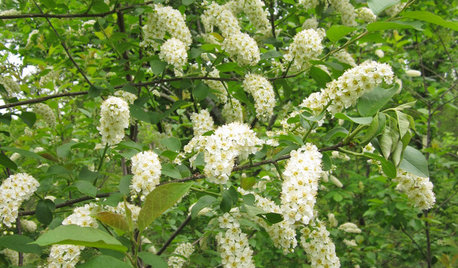
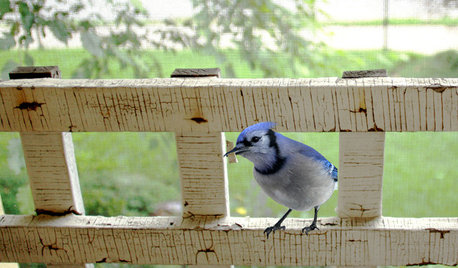



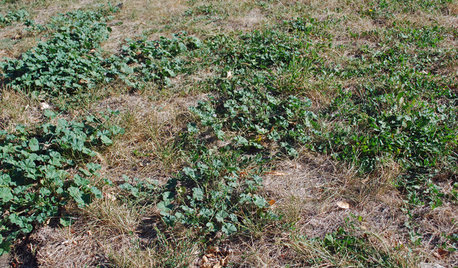
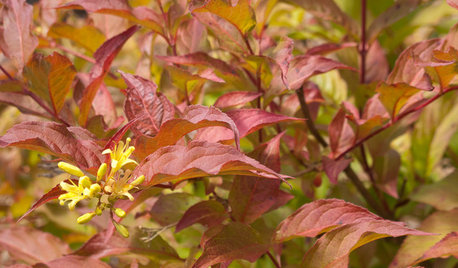
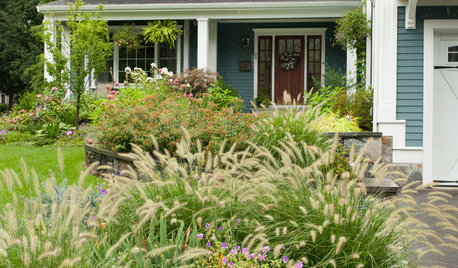









soonergrandmom